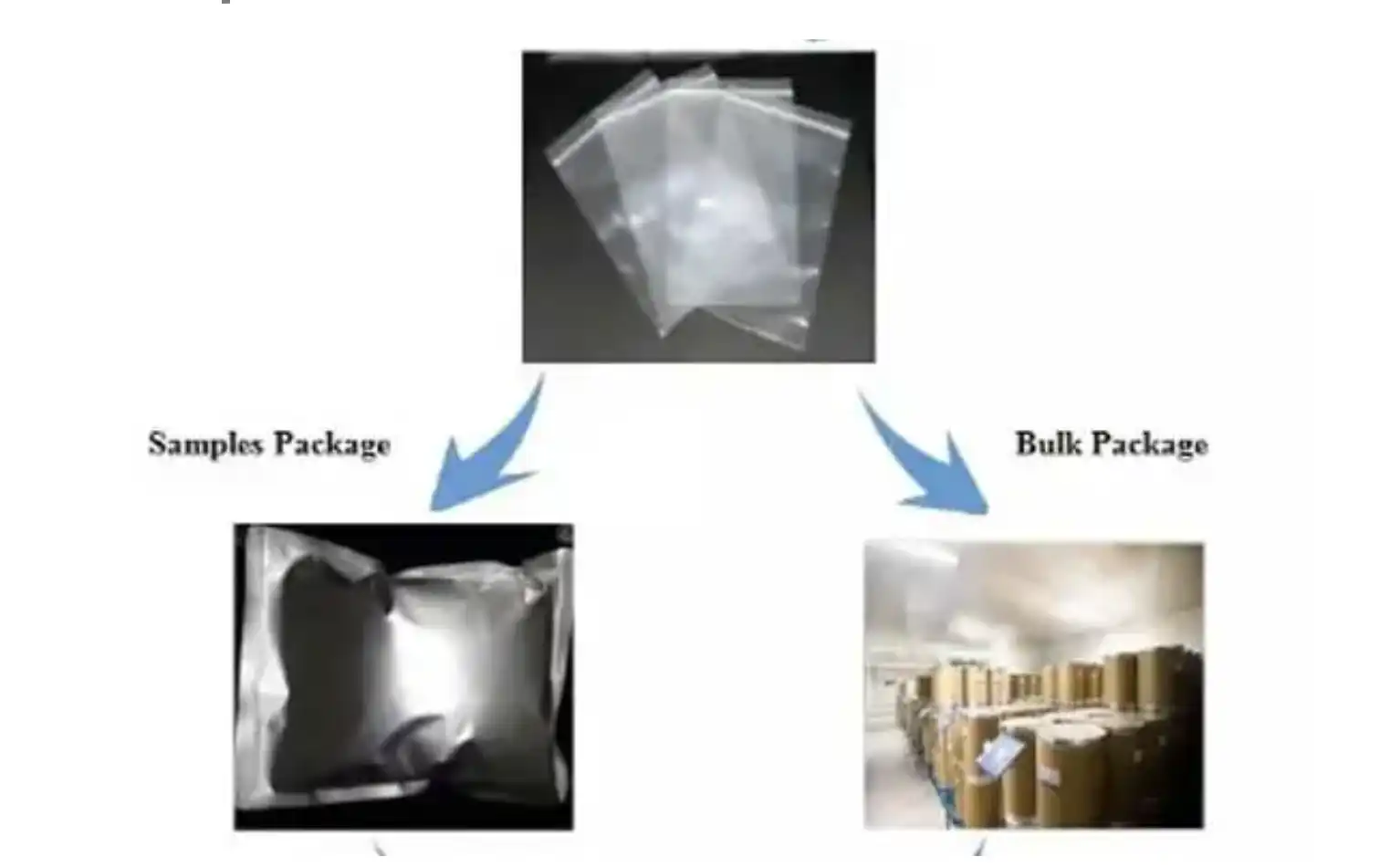L-ascorbic acid powder, the purest form of vitamin C, has become a game-changer in the skincare industry. Its remarkable ability to brighten skin and combat various skin concerns has made it a staple in many beauty routines. In this comprehensive guide, we'll explore how L-ascorbic acid powder works its magic on your skin, how to maximize its benefits, and why it stands out among other vitamin C derivatives.

The Science Behind L-Ascorbic Acid's Skin Benefits
L-ascorbic acid, also known as vitamin C, is a potent antioxidant that offers numerous benefits for the skin. Its skin-brightening properties stem from its ability to inhibit melanin production, the pigment responsible for dark spots and uneven skin tone.
When applied topically, L-ascorbic acid penetrates the skin and interacts with copper ions at the tyrosinase active site. This interaction inhibits the enzyme tyrosinase, which plays a crucial role in melanin synthesis. By reducing melanin formation, L-ascorbic acid powder effectively fades hyperpigmentation and promotes a more even, radiant complexion.
But the benefits of L-ascorbic acid don't stop at skin brightening. This versatile ingredient also:
- Stimulates collagen production, improving skin elasticity and reducing the appearance of fine lines and wrinkles
- Protects against free radical damage caused by UV exposure and environmental pollutants
- Enhances the skin's natural repair process, promoting faster wound healing
- Reduces inflammation, making it beneficial for conditions like acne and rosacea
The remarkable thing about L-ascorbic acid is its ability to address multiple skin concerns simultaneously. Whether you're battling dark spots, dullness, or signs of aging, this powerhouse ingredient can help revitalize your skin and restore its natural glow.

Maximizing L-Ascorbic Acid's Potency
While L-ascorbic acid is undoubtedly effective, it's also notoriously unstable. To ensure you're getting the most out of your L-ascorbic acid powder, consider the following tips:
Proper Storage
L-ascorbic acid is sensitive to light, air, and heat. Store your product in a cool, dark place, and ensure the container is tightly sealed when not in use. Some beauty enthusiasts even store their vitamin C products in the refrigerator to extend their shelf life.
Optimal Concentration
Studies have shown that L-ascorbic acid is most effective at a concentration between 10-20%. However, if you're new to vitamin C or have sensitive skin, it's best to start with a lower concentration (around 5%) and gradually increase as your skin builds tolerance.
pH Matters
L-ascorbic acid works best at a low pH level, ideally between 2.0-3.5. This acidic environment allows for optimal absorption into the skin. When using L-ascorbic acid powder, ensure you're mixing it with a water-based product that maintains this ideal pH range.
Proper Application
Apply your L-ascorbic acid product to clean, dry skin. Allow it to absorb fully before applying other skincare products. For best results, use it in the morning under sunscreen to boost your skin's defense against UV damage throughout the day.
Synergistic Ingredients
L-ascorbic acid works well with certain ingredients and should be avoided with others. It pairs excellently with vitamin E and ferulic acid, which can enhance its stability and effectiveness. However, avoid using it alongside niacinamide, as they can potentially cancel each other out.
L-Ascorbic Acid vs. Other Vitamin C Forms: A Comparison
While L-ascorbic acid is the most potent form of vitamin C for skincare, other derivatives have gained popularity due to their increased stability. Let's compare L-ascorbic acid powder with some common alternatives:
Ascorbyl Glucoside
This vitamin C derivative is more stable than L-ascorbic acid and gentler on the skin. It converts to L-ascorbic acid once absorbed, providing similar benefits. However, it's less potent, meaning you may need a higher concentration to see comparable results.
Magnesium Ascorbyl Phosphate (MAP)
MAP is a water-soluble derivative that's more stable and less irritating than L-ascorbic acid. It's particularly effective for hydrating the skin and may be a better choice for those with sensitive skin. However, it may not be as effective for collagen production and skin brightening as pure L-ascorbic acid.
Ethyl Ascorbic Acid
This derivative combines the stability of ascorbyl glucoside with the potency of L-ascorbic acid. It's less irritating and more stable, making it a good choice for sensitive skin. However, research on its effectiveness compared to L-ascorbic acid is limited.
While these derivatives offer increased stability and gentleness, L-ascorbic acid powder remains the gold standard for vitamin C in skincare. Its superior absorption and proven efficacy make it the top choice for those seeking dramatic results in skin brightening and overall skin health.
Conclusion
L-ascorbic acid powder is a powerful tool in your skincare arsenal, capable of brightening skin, fighting signs of aging, and protecting against environmental damage. By understanding how it works and how to use it effectively, you can harness its full potential to achieve radiant, healthy-looking skin.
At Guangzhou Jianbei Biotechnology Co., Ltd., we're committed to providing high-quality L-ascorbic acid powder for all your skincare needs. Whether you're a skincare enthusiast looking to create your own serums or a beauty brand seeking top-tier ingredients, our pure, potent L-ascorbic acid powder is the perfect choice for your skin-brightening formulations.
Ready to experience the transformative power of L-ascorbic acid? Contact us today at h33727868@gmail.com to learn more about our products and how we can help you achieve your skincare goals. Let's work together to unveil your skin's natural radiance!
References
1. Farris, P. K. (2005). Topical vitamin C: A useful agent for treating photoaging and other dermatologic conditions. Dermatologic Surgery, 31(7 Pt 2), 814-818.
2. Pullar, J. M., Carr, A. C., & Vissers, M. C. M. (2017). The roles of vitamin C in skin health. Nutrients, 9(8), 866.
3. Al-Niaimi, F., & Chiang, N. Y. Z. (2017). Topical vitamin C and the skin: Mechanisms of action and clinical applications. The Journal of Clinical and Aesthetic Dermatology, 10(7), 14-17.
4. Telang, P. S. (2013). Vitamin C in dermatology. Indian Dermatology Online Journal, 4(2), 143-146.










